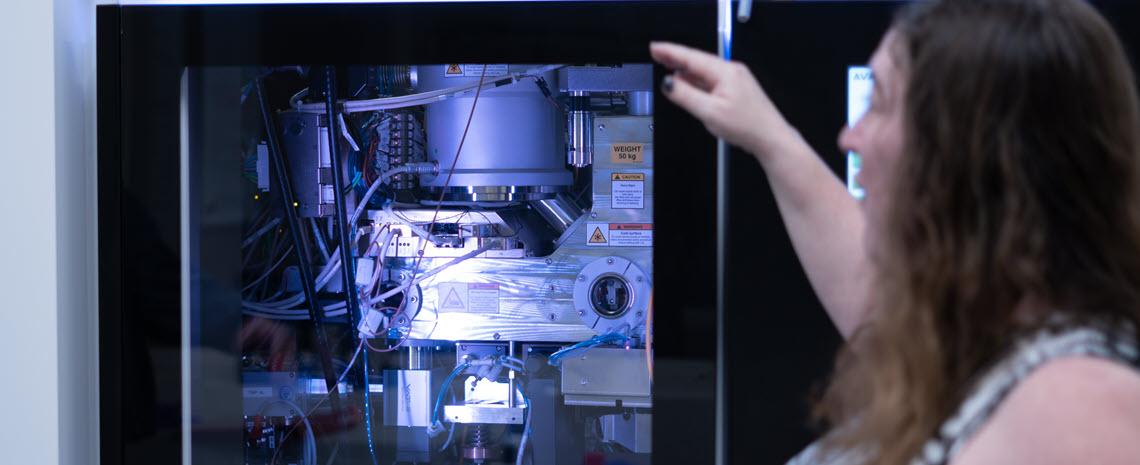Natural Science partnership magnifies IPF's importance to research

Anthony Yuhasz
November 5, 2019
MSU’s latest state-of-the-art research equipment acquisition, the cryogenic electron microscope (cryo-EM) would not have been possible if not for the diligent work of Natural Science senior associate dean David DeWitt, assistant professor Kristin Parent and various members of Team IPF.
The Faculty Readiness Project Team was created to shorten the time frame for completion of projects supporting incoming faculty. The team recently partnered with Planning, Design and Construction (PDC) mechanical engineer, Bryan Anderson, along with crews from IPF Maintenance Services, to leverage existing energy conservation projects, creating efficiencies in renovating existing space at the Engineering Research Complex for the cryo-EM, saving millions over the cost of a new facility.
“The team uses expedited delivery tools, formulated by IPF, to create lab spaces in preparation of enhanced research on campus,” said project manager Alan Vanderstelt. “IPF becomes involved as a partner in the early stages of the recruitment process, which improves the accuracy of the project’s scope and budget, aligns expectations and shortens delivery time.”
The FRP Team, comprised of PDC's Tiana Carter, Sue Hopper, Brian Mullen, Monte Pride and Alan Vanderstelt, along with Facilities Planning and Space Management's Eric Boatman, visited Van Andel Institute in Grand Rapids during the early planning stages to view a similarly installed machine and to review its unique housing requirements.
“This was the most technically complex project Natural Science has ever done, with a delicate machine that has very unique needs,” DeWitt said. “I was very pleased with both the outcome and the speed at which it got done, and the fantastic way it was managed by the FRP team.”
Cryo-EM allows researchers to image frozen samples, determining atomic-level molecular structures. By studying the structure of cell-membrane proteins, new drug therapies can be developed.
“This is one of those examples where IPF has contributed significantly to the mission of the university and it’s a great illustration of how we can work together,” DeWitt said. “I think it’s important for the people in IPF to understand just how much of an impact they have to the success of the university; they are partners with us, and we can’t do it without them.”
He added, “They are an integral part of something that could lead to a cure for cancer, or the next new diabetes drug.”
